Eddie Jacobson never asked his close friend, US President Harry Truman, for help, but in March 1948, he made a plea.
During a meeting in the Oval Office of the White House on the morning of March 13, 1948, Eddie Jacobson called on President Truman to meet with Chaim Weizmann, former head of the World Zionist Organization and spiritual leader of the movement, to recognize the first Jewish state in nearly 2,000 years.
"You must meet Dr. Weizmann," Jacobson, a Jewish-American businessman, told Truman, the 33rd president of the United States. "You must support an independent Jewish state."
The suggestion upset and angered President Truman, who, according to historians, had often disparaged Jews in private conversations. He even turned his chair away from Jacobson. Jacobson then saw a small statue of the late President Andrew Jackson on horseback in the room and decided to make another appeal.
"Harry, you have a hero, Andrew Jackson. I have a hero, Chaim Weizmann," Jacobson said. "He was the greatest Jew of our time. Weizmann was old and sick and he came all the way to see you, and you wouldn't meet him? That's not like you."
Truman tapped his fingers on the table and turned in his chair. He had changed his mind. "All right, you stubborn baldhead. You win. I'll see Weizmann."
That approval led to a secret meeting between Truman and Weizmann a few days later, in which the US president promised to support the effort to establish the state of Israel.
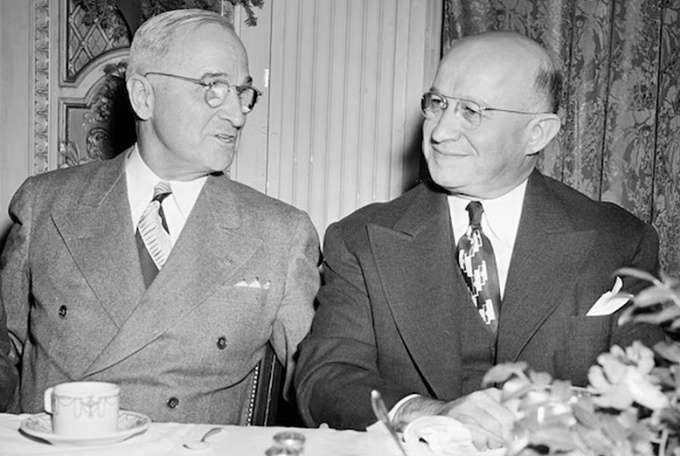
President Harry S. Truman (left) talks with longtime friend Eddie Jacobson at a dinner honoring Jacobson in Kansas City, Missouri, on December 27, 1947. Photo: AP
Truman and Jacobson's friendship began in Kansas City, Missouri. Jacobson was born on June 17, 1891, and grew up on New York's Lower East Side before moving to Kansas City. His parents were poor Jewish immigrants from Lithuania.
In 1906, not long after moving, Jacobson, a 15-year-old dropout, was mailing out receipts for a dry goods store near the Union National Bank when he met Truman, then a 22-year-old cashier. They reconnected in 1917 at Fort Sill in Oklahoma, where they were training for World War I. They became friends and ran a barracks canteen together to raise money to buy extra food and supplies for their comrades.
"I had a Jew in charge of the cafeteria named Jacobson, and he was a fine boy," Truman once wrote.
After the war, they went into business together again. In November 1919, Truman and Jacobson decided to open a men's clothing and accessories store in downtown Kansas City.
"Harry traveled a lot and socialized with a lot of people. He never stayed in the store all day, he went out to lunch and socialized with people," recalled Ted Marks, a close friend of President Truman. "Eddie Jacobson stayed in the store, taking care of business."
But the business failed, partly due to the 1921 slump in grain prices that hit the Midwestern economy. The postwar recession forced the store to close in 1922.
"Jacobson and I went to bed with $35,000 worth of inventory and woke up the next day with a $25,000 deficit," Truman wrote in 1945. "This brought bills and bank loans so quickly that we were bankrupt."
Jacobson declared bankruptcy in 1925, and his debts continued to plague him in the years that followed. Truman struggled to pay them off, but was able to pay them off by 1935, when he became a senator from Missouri. The two remained in touch over the years, with Jacobson often taking Truman hunting and fishing on the Missouri River.
Harry Truman became vice president of the United States in the administration of Franklin D. Roosevelt in January 1945. In April of that year, Truman became president upon Roosevelt's death.
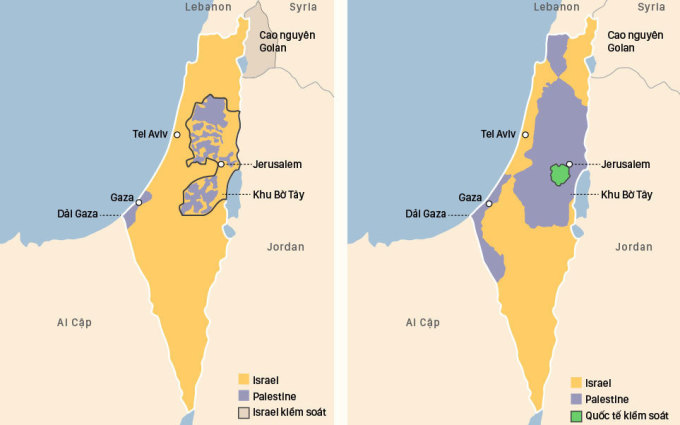
The current Israeli-Palestinian territory (left) and the one proposed by the United Nations in 1947. Graphics: Viet Chung
The Jewish Kingdom of Israel was founded around the 11th century BC. In 586 BC, Babylon conquered the area and the area subsequently came under the control of the Persians and the Roman Empire. From 641 AD, the Arabs ruled the area for 1,300 years through a series of dynasties. The Jewish presence there dwindled considerably, with many living in exile elsewhere in Europe. In 1516, the Ottoman Empire conquered the area and called it Ottoman Palestine.
Zionism arose in 1881 when diaspora Jews longed to return to the "Land of Israel" and sought to establish a Jewish state. Many Jews from Europe and Russia settled in Ottoman Palestine.
After World War I, Britain defeated the Ottomans and took over the area, calling it the Mandate of Palestine. It was predominantly Muslim Arab, with Jewish and Christian minorities. However, after World War II, the Jewish population grew rapidly due to the influx of European Jews following the Holocaust, giving impetus to the idea of creating a separate Jewish home.
The origins of the Israel-Palestine conflict. Video: Vox
To gain American support, Zionist leaders contacted Jacobson to ask him to persuade President Truman to meet with Weizmann.
Jacobson spoke to Truman about the atrocities committed against Jews before and during the Holocaust, but Truman was initially reluctant to embrace the idea of an independent Jewish state. The State Department advised Truman not to recognize Israel because of concerns about the reaction of Arab countries.
When Jacobson suggested that Truman meet with Weizmann and consider recognizing the state of Israel, the President became angry and spoke of how "disrespectful and mean" some Jews had treated him. Jacobson was brought to tears as he continued to persuade Truman, according to Plain Speaking , a 1973 biography of Truman by Merle Miller.
“You refused to meet with Weizmann because you were insulted by some American Jewish leaders, even though you knew that Weizmann had absolutely nothing to do with those insults,” Jacobson said. “That doesn’t sound like you, Harry.”
Finally, Truman relented and accepted the meeting. Weizmann was a seasoned diplomat. He told Truman: "You have the opportunity of a lifetime. If you make a strong decision, you will go down in history forever. Truman was so impressed by this that he called Warren Austin, the US Ambassador to the United Nations.
The US State Department was under pressure from Arab supporters at the time. Austin was in the middle of a speech about the US wanting to withdraw from the partition plan when he received a call from Truman. After answering the phone, he told the meeting: "President Truman has instructed me that the US fully supports the partition plan approved by the United Nations and will make every effort to see it carried out."
On May 14, 1948, Israel declared its independence. Eleven minutes later, President Truman issued a proclamation recognizing Israel. "The United States recognizes the provisional government as the de facto authority of the new state of Israel," he wrote. Weizmann became Israel's first president.
Senior State Department officials were initially upset that Truman had made the announcement without warning them. However, the announcement marked the beginning of a relationship between the United States and Israel that has lasted more than 75 years, with most US presidents pledging support for the Jewish state.
According to the Columbian Missourian , President Truman said at the dedication of a chapel in 1959 that "Jacobson was a man of quiet devotion to the establishment of the Israeli government."
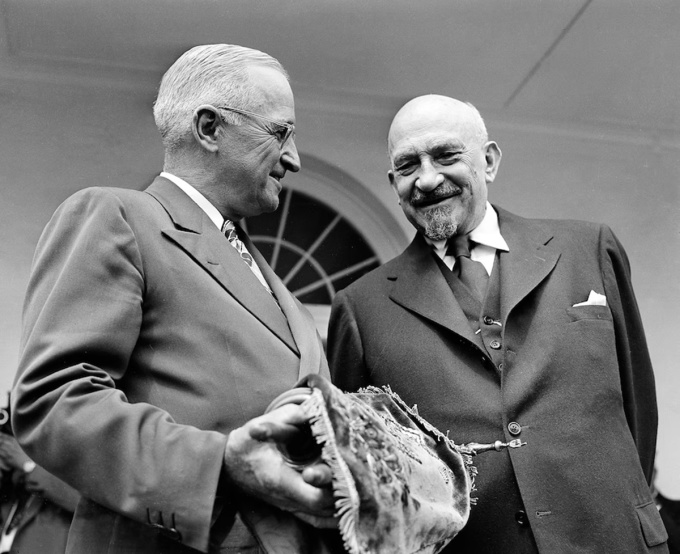
President Truman holds a copy of the Torah presented to him by Chaim Weizmann in Washington on May 25, 1948. Photo: AP
Some wanted Jacobson to become leader of Israel, but he dismissed the notion, telling reporters in 1949 that he was "too proud of my American citizenship to exchange it for any position in the world."
Jacobson died of a heart attack in 1955 at the age of 64. When Truman visited Jacobson in Kansas, he was so distraught that he could barely speak. "One of the best friends I ever had in the world," he wrote in the guest book at Jacobson's home. "I don't think there is anyone outside my family I miss more than Eddie Jacobson. He was a man of honor. He was one of the finest men who ever walked this earth."
Vu Hoang (According to Washington Post )
Source link


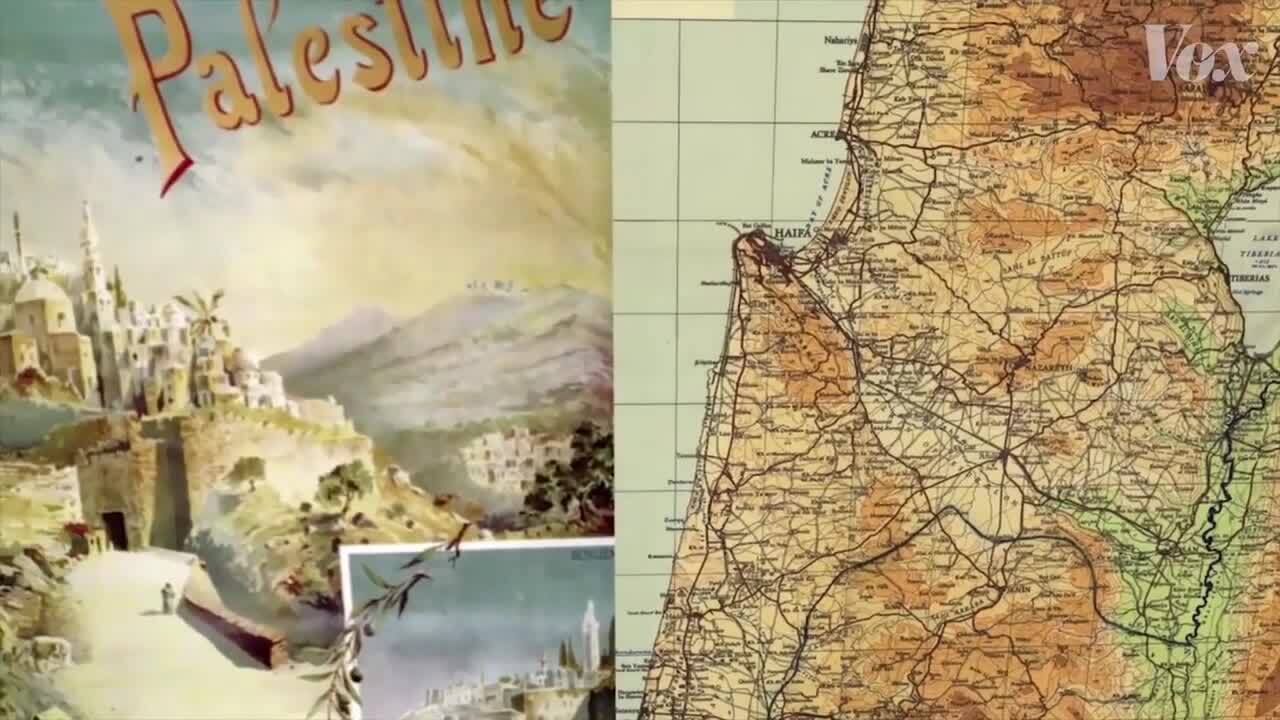















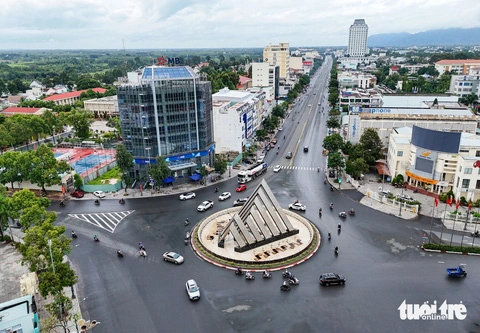

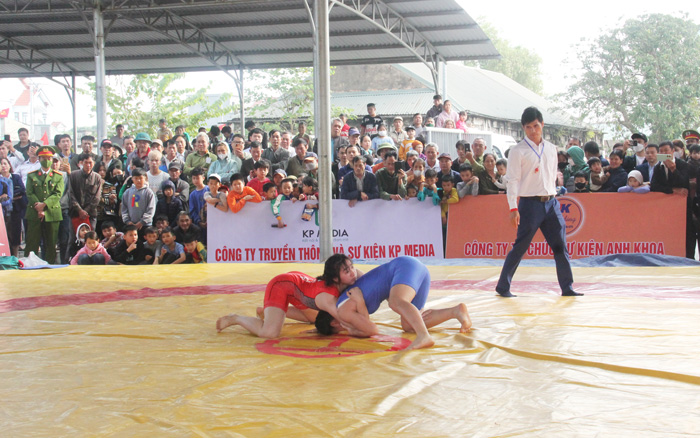

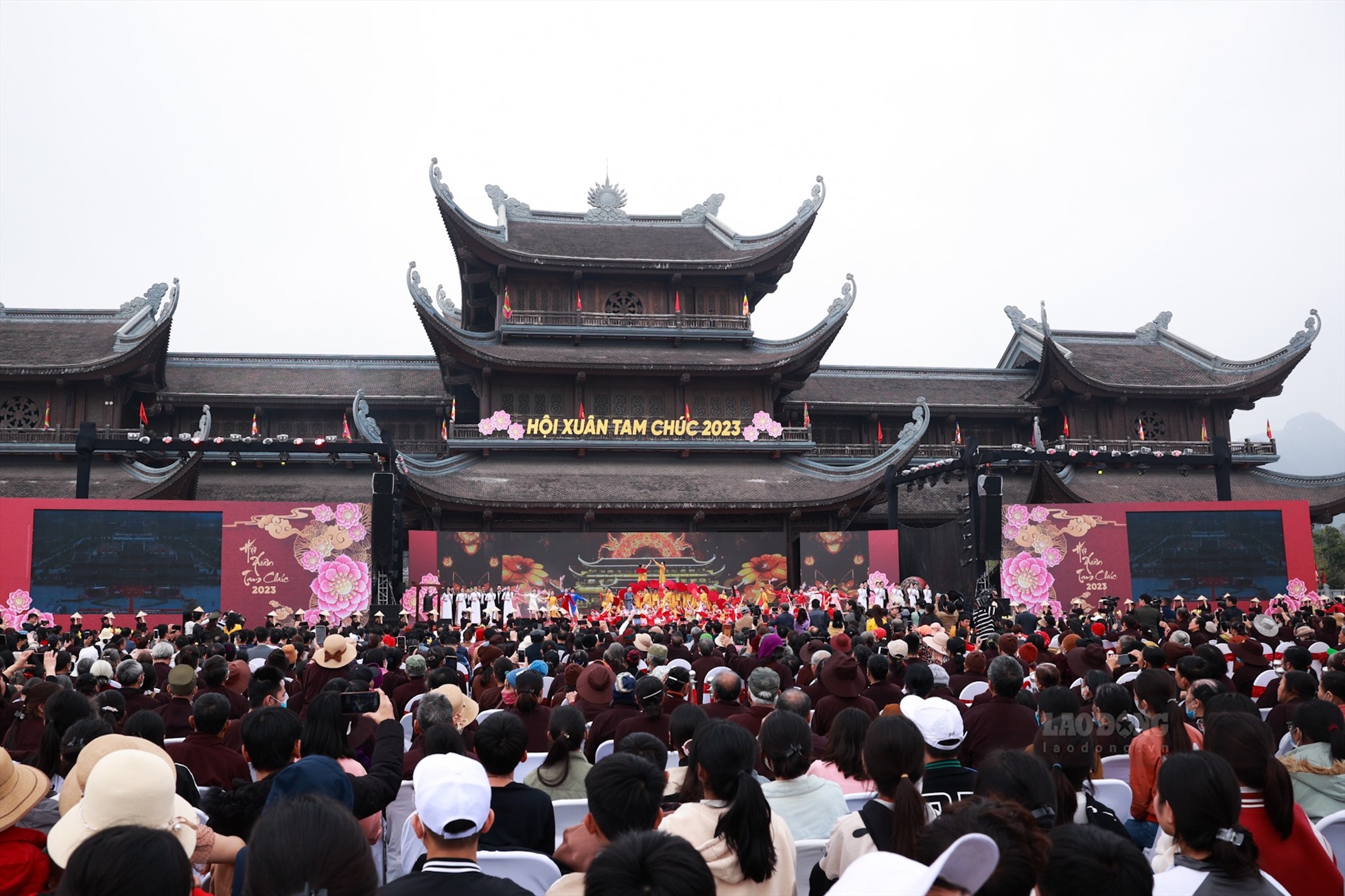






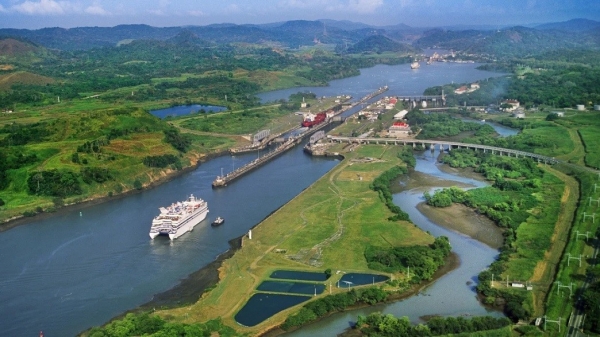

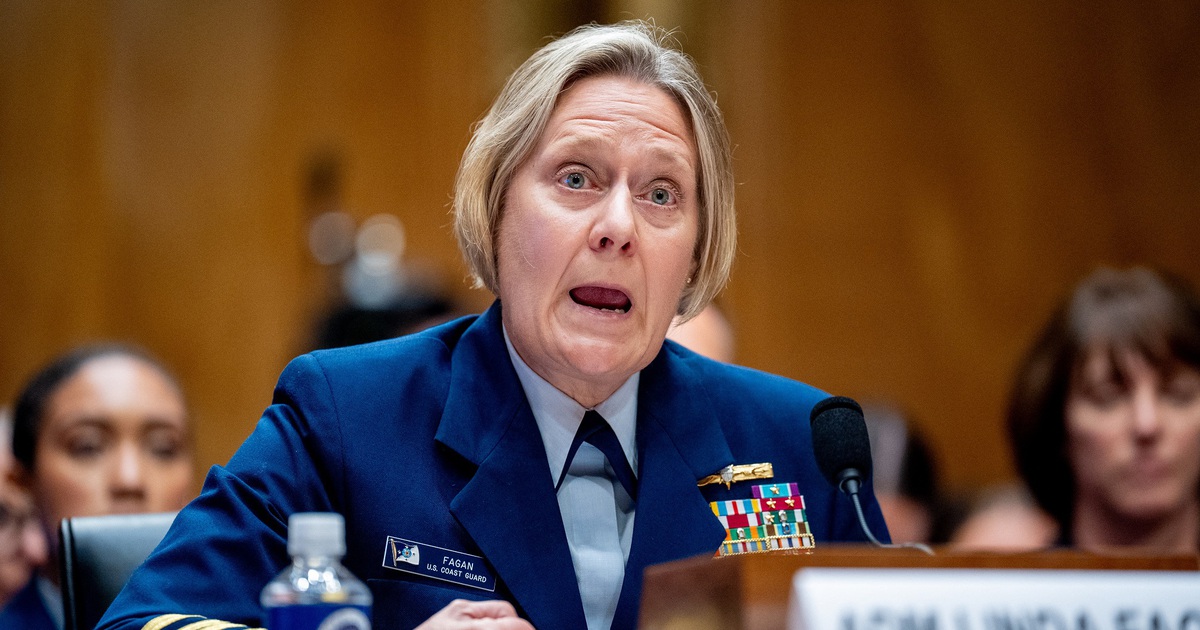

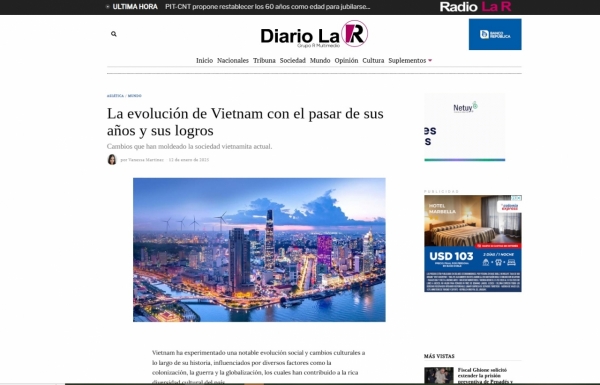
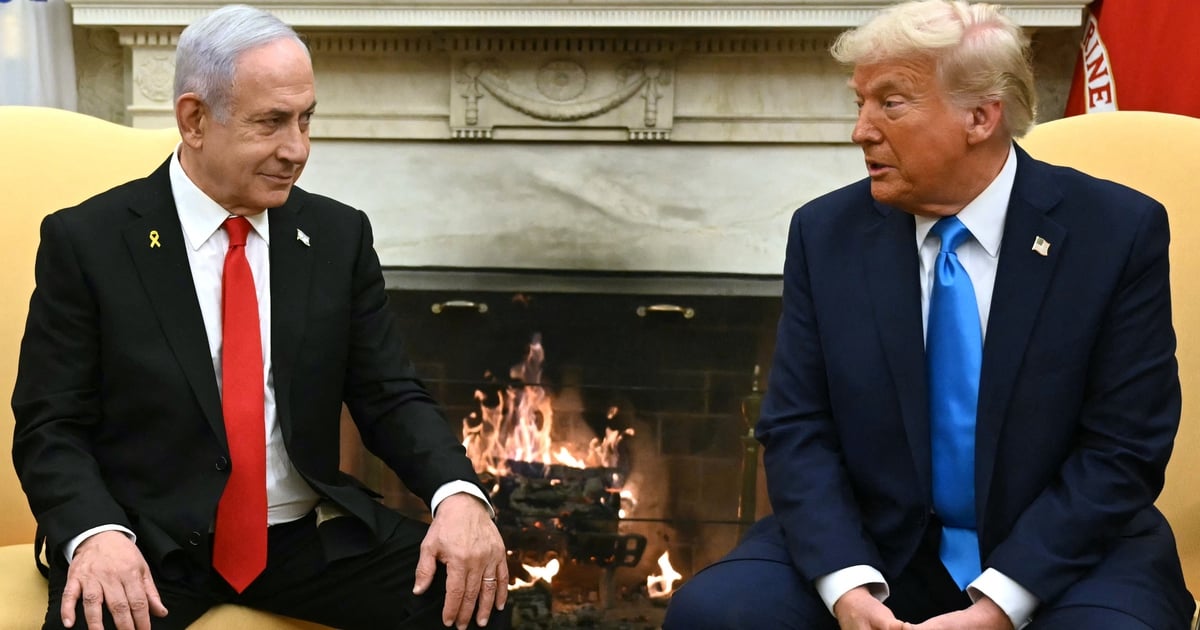
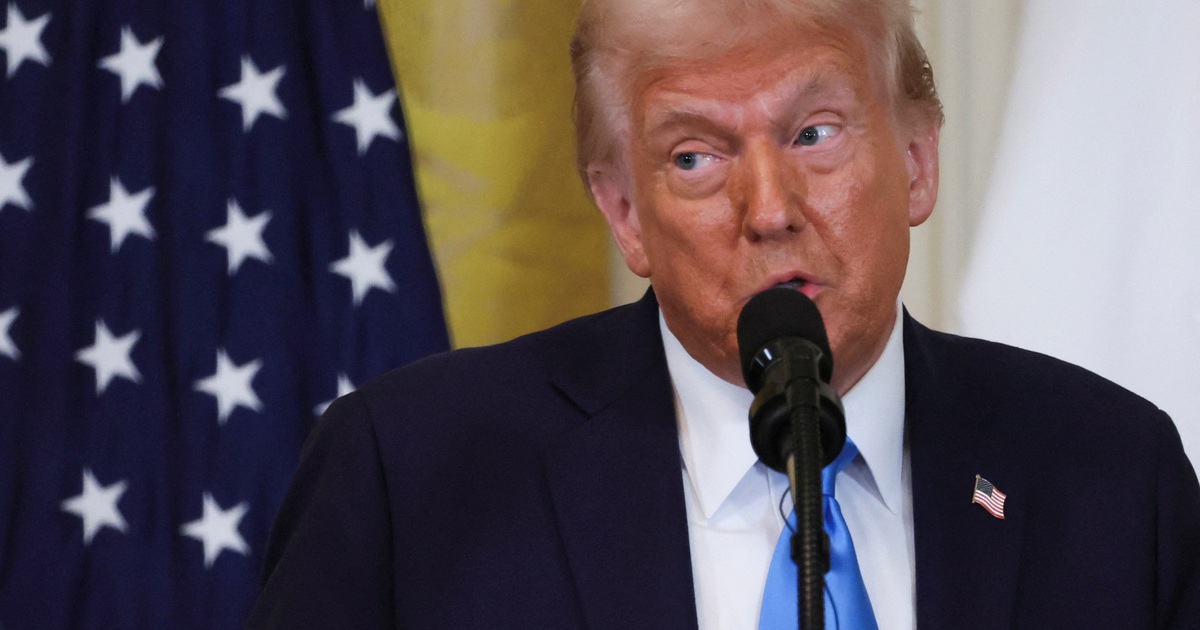
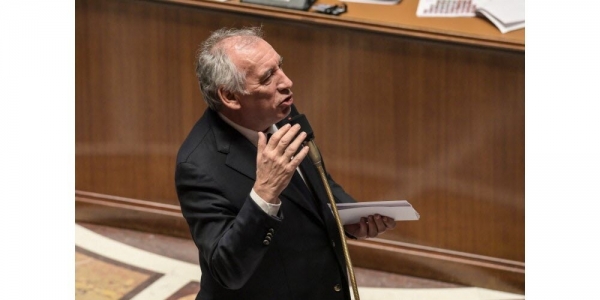






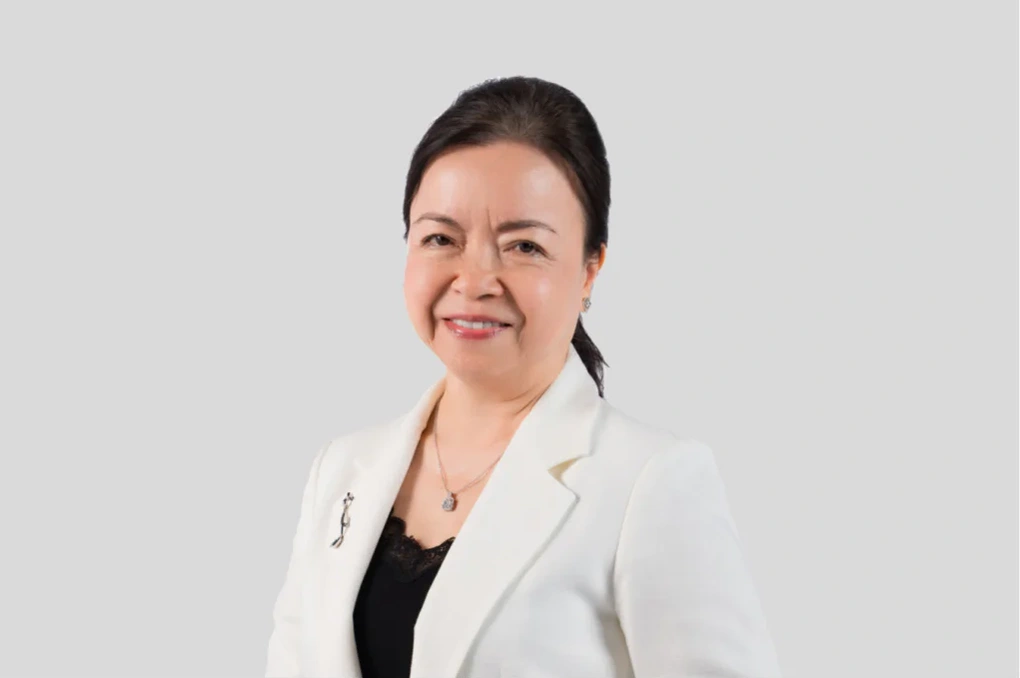





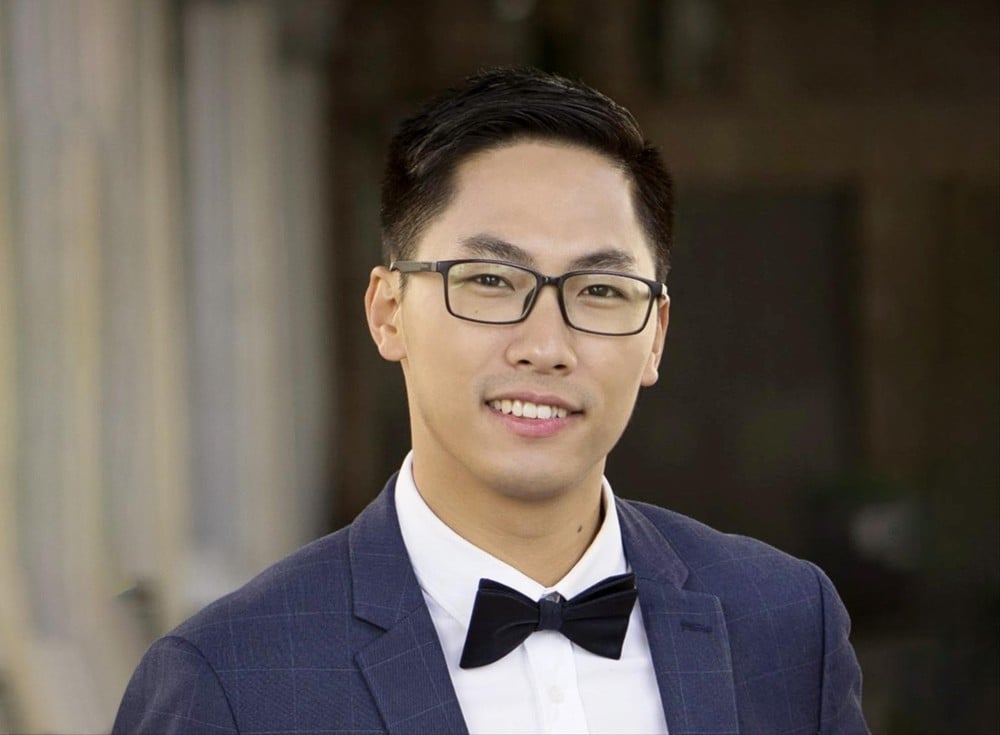







Comment (0)